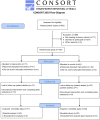Long Term Follow-Up after a Randomized Integrated Educational and Psychosocial Intervention in Patient-Partner Dyads Affected by Heart Failure
- PMID: 26406475
- PMCID: PMC4583392
- DOI: 10.1371/journal.pone.0138058
Long Term Follow-Up after a Randomized Integrated Educational and Psychosocial Intervention in Patient-Partner Dyads Affected by Heart Failure
Abstract
Background: To date, contemporary heart failure care remains patient-focused, but awareness of the partners' and families' situation is increasing. Randomized studies have mainly evaluated the short-term effects of dyadic interventions. Therefore, the aim of this study was to determine the 24-month effects of an intervention with psych-educational support in dyads of heart failure patients and their partners.
Methods: This study used a randomized study design and 155 patient-partner dyads were enrolled. The intervention included a nurse-led program of three sessions addressing psychoeducational support.
Results: The intervention did not have any effect on health, depressive symptoms or perceived control among the patient-partner dyads after 24 months. Furthermore, time to first event did not differ significantly between the intervention group and the control patients.
Conclusion: This study may be regarded as a first step in trying to understand dyads' need for supportive care. Individualized and more targeted interventions seem necessary to achieve a higher impact on dyad outcomes.
Trial registration: ClinicalTrials.gov NCT02398799.
Conflict of interest statement
Figures
References
-
- McMurray JJ, Adamopoulos S, Anker SD, Auricchio A, Bohm M, Dickstein K, et al. (2012) ESC guidelines for the diagnosis and treatment of acute and chronic heart failure 2012: The Task Force for the Diagnosis and Treatment of Acute and Chronic Heart Failure 2012 of the European Society of Cardiology. Developed in collaboration with the Heart Failure Association (HFA) of the ESC. Eur J Heart Fail 14: 803–869. 10.1093/eurjhf/hfs105 - DOI - PubMed
-
- Clark AP, McDougall G (2006) Cognitive impairment in heart failure. Dimens Crit Care Nurs 25: 93–100; quiz 101–102. - PubMed
Publication types
MeSH terms
Associated data
LinkOut - more resources
Full Text Sources
Other Literature Sources
Medical


